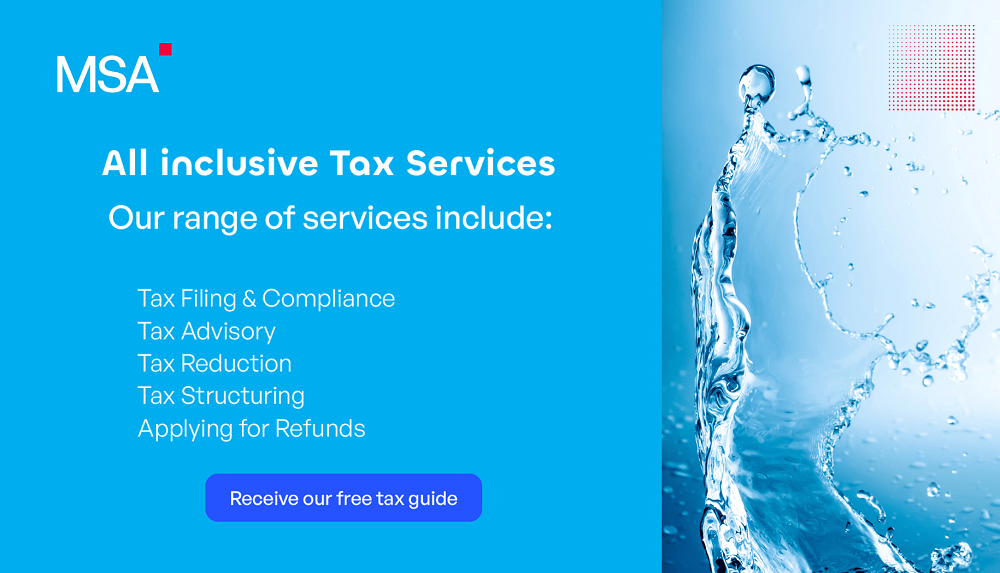In light of the constantly changing tax and regulatory environment, and in an effort to provide a better understanding of how VAT works in China, we sat down with Harm Hoonstra, Manager at MSA China, to provide some insights on VAT in China.
For a complete overview of VAT in China check out our China VAT Guide: Everything You Need To Know About China’s VAT System
1. How Would You Describe the VAT Framework in China, in Terms of Current Regulations?
The current VAT Framework in China has evolved over the course of multiple reforms following the opening of China’s economy. VAT in China is currently governed by interim regulations, which have been implemented to provide a more progressive tax system.
In past years, reforms to China’s tax system have helped create a new structure for the Chinese economy, by reducing the tax burden on the service sector, increasing the scope of VAT refunds and setting exemption thresholds for small-scale taxpayers.
Before the outbreak of Covid-19, the government had issued a draft VAT law open for comments. Due to the fight against the pandemic, no further action on implementing a VAT law has been taken since. We do however expect a VAT to come into effect in the near future.
The VAT rate that is applicable on a company’s sales predominantly depends on two factors, 1) whether the company is a general VAT taxpayer or special VAT taxpayer, and 2) the type of products or services the company offers.

Doing Business in China
If you want to learn more about Doing Business in China, you’ve come to...
Read more2. What’s the Difference Between General and Special Taxpayers in China?
The VAT system is generally applicable throughout all of China, and few differences exist at a local level. However, as previously discussed, there are key distinctions for VAT between general taxpayers and small-scale taxpayers based on annual sales.
Businesses with annual sales at or exceeding RMB 5 million will be considered as general taxpayers, while companies below that threshold will be regarded as small-scale taxpayers. Companies with annual sales below the given threshold, however, are still able to apply for general taxpayer status.
Small-scale taxpayers have a payable rate of 3% and are not able to subtract input VAT from output VAT. The VAT rate for general taxpayers is determined according to specific categories, such as sales of goods or services, while they are able to deduct input VAT from output VAT.
In terms of the difference in fapiaos for each type of taxpayer, general VAT fapiaos and special VAT fapiaos are different in the sense that special VAT fapiaos enable businesses to have the right to input VAT deductions, while general VAT fapiaos do not have the same benefit. Previously, small scale taxpayers were not able to issue special fapiaos given that input VAT could not be deducted, however it is now possible for small-scale taxpayers to apply with the tax bureau to be able to issue special fapiaos, so their general taxpayer clients can enjoy input VAT deductions. Small-scale taxpayers will still not be able to enjoy any deductions, even when issuing a special fapiao.
3. What are the Respective VAT Exemptions for Different Categories of Taxpayers?
Companies that export goods, or provide cross-border sales of services or intangible assets, can do so according to 0% VAT. This effectively means that companies will be able to claim a refund on all related input VAT, since there will be no output VAT on those goods or services. If a company sells both domestically and internationally, it will need to be properly structured in order to reduce its VAT burden.
Another exemption to support smaller companies is that small-scale taxpayers are exempt from paying VAT if monthly sales are below RMB 150,000.
Furthermore, following a Government Work Report in 2022, small-scale taxpayers will be exempt from paying VAT issued on taxable sales income until December 31 in 2022. However, if companies decide to issue special VAT fapiaos the standard tax rate of 3% will apply.
4. What do Companies in China Need to Know With Regards to Other Operational Tax Requirements, such as VAT Filing and What are the Requirements for Receiving a VAT Refund?
On a monthly or quarterly basis, businesses based in China are required to complete VAT filings. In general, small-scale taxpayers with lower annual sales income can file for VAT on a quarterly basis, while general taxpayers are required to follow a monthly deadline for VAT filings. The tax filing deadline is generally on the 15th day of the succeeding month and is postponed if the date falls on a weekend or is changed due to public holidays.
For VAT refunds, there are 2 mechanisms which companies are able to consider, namely exported goods and excess input VAT. Exported goods are not subject to output VAT, and companies are able to utilize the monthly VAT refund claim for any input VAT that is deducted.
VAT refunds differ for exports for manufacturing and trading companies. Manufacturing companies will normally receive an input VAT fapiao for any materials purchased and will be required to pay output VAT when selling in the domestic market. If the manufactured product is exported, however, there is no payable output VAT. If the input VAT exceeds the output VAT the company can apply for the refund of the excess of input VAT at the tax administration. VAT refunds for trading companies are equivalent to the input VAT paid for goods that were subsequently exported. Due to the absence of output VAT, a new refund system based on a ‘refund rate’ for various product categories has been created to enable refunds.
For domestic VAT refunds, companies are able to carry input VAT from the previous period if the amount exceeds output VAT.
VAT refunds have become more accessible following new policies introduced in 2022, with prioritization of micro and small firms and targeted sectors such as manufacturing and information technology. Companies that fulfill the qualifications and belong to a group of prioritized industries will be eligible to apply for monthly VAT refunds. Lastly, any remaining refund credits can be used for a one-time refund.
For more information on Tax and other matters download our FREE “Complete Guide to Doing Business in China” or get in touch with us right away and one of our consultants can provide you with the info you need.





